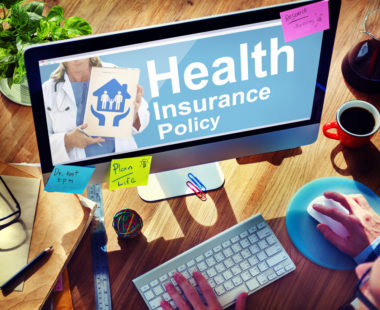It is widely known that health care in the United States is lacking. Costs for insurance premiums have skyrocketed, and so has the price of care in many hospitals and clinics across the nation.
When health care costs can be so up in the air — as many hospitals have higher prices to make up for the discount demanded by insurance companies — it can be extremely difficult to comparison shop and find a doctor that is within your budget. Plus, if you’re in need of immediate medical help, you won’t have time to research your options. Even if you do have insurance through a high-deductible plan with an Health Savings Account (HSA), you could still end up paying thousands of dollars out of pocket for emergency services.
Many Americans who have minimal or no health insurance will simply put off their health needs until it becomes too severe to ignore. However, this often results in expensive emergency room visits, which cost considerably more than a yearly doctors visit.
Avoiding the doctor is both unhealthy for your body, and unhealthy for your wallet. Instead, use these tips to help you find an affordable clinic in your area. Many of these clinics can provide general primary care, mental health services, prenatal and family care, and can offer referrals to more specialized services, scans, or tests.
Table of Contents
Free, Low-Cost, and Sliding Scale Clinics: What You Need to Know
Affordable clinics can be hard to find, but they’re not nearly as rare as you may think. Most rural and urban areas will have a low-cost or sliding scale clinic within a few miles of them. There are a few databases online to help you find a clinic near you — such as the NeedyMeds.org “Free Clinics” database — but before you go searching, you should know what to expect.
- Sliding scale clinics are perfect for those that are low-income or living on a fixed-income. They can offer a variety of services, and will adjust the price you have to pay based on your income and what you can afford. Often times they will have you fill out a questionnaire, and many will ask for proof of income to make sure you qualify. Those living below the poverty line may only have to pay a small amount of the overall bill, but those who have an income that exceeds 100-200 percent above the poverty line may have to pay full price for services. Additionally, some hospitals or doctors clinics may offer a sliding scale pricing system but not advertise this benefit, so always ask your doctor if it is available at your regular clinic.
- Free or low-cost clinics can be found in many cities, and can provide routine services, long term chronic illness care, and have a limited access to prescriptions, medical testing, and dental care. They also often have a staff of volunteers that work within the medical field; sometimes medical students working on their degree, or good samaritan doctors or nurses working on their weekends. These clinics provide discount services to low-income, uninsured or underinsured individuals, or those who cannot qualify for Medicare or Medicaid. Sometimes, if your income is deemed high enough, you may be charged a small fee to help offset the cost of running the clinic. Otherwise, many services will be provided for free or at a fraction of the cost (compared to other offices or hospitals).
- Community health centers are similar to low-cost clinics in how they determine the cost of a service for you, and some may use volunteer nurses or nursing students. They also are often located in medically underserved areas, or areas that are typically lower-income and have limited access to hospitals, urgent care facilities, or general primary care facilities. They are largely funded by the federal government as well as the local community, meaning they may charge you a small fee to utilize their services. To find a community health center near you, you can search the Health Resources and Services Administration’s Data Warehouse.
Most importantly, be honest with all medical providers and clinics about what you can afford to pay. All non-profit hospitals and most clinics are willing and able to help you pay for services, and being honest about your financial situation can sometimes eliminate any potential bills. Some clinics may ask for some amount of money up front, but then won’t bill you after the service. Others might ask for a proof of income and then charge you on a sliding scale.
Even if you’ve already sought out medical treatment and are now faced with a large bill, contacting the medical billing department of your hospital or clinic can help you avoid collections. Medical providers can also sign you up for a repayment plan, or give you a discount on any service received. When it comes to saving money on medical costs, honesty really is the best (and least expensive) policy.
Affordable Women’s Health and Pregnancy Care
Prenatal care (the care you receive while pregnant) can be extremely important for both you and the life of your child. Finding affordable health care clinics can be tricky, but there are a handful of options that you can look into, depending on your location:
- Planned Parenthood is a nationwide nonprofit organization that provides primary and pregnancy-related health care services. They can provide ultrasounds and regular checkups on a sliding scale, and have the ability to prescribe medications and recommend specialists.
- Women’s Care Center is a 24 hour clinic operating in eight states: Florida, Illinois, Indiana, Kentucky, Maryland, Michigan, Minnesota, Ohio, and Wisconsin. According to their website, they provide free counseling, support, and education for those experiencing an unplanned pregnancy. This includes ultrasounds and pregnancy tests, but they cannot offer ongoing care. However, they can recommend other local clinics that provide free or discount services.
- Medicaid is the government regulated insurance for those who live on a low or fixed income, and pregnant women are covered if they fall at or below 133 percent of the federal poverty level. All care related to pregnancy should be covered, including the delivery, as well as 60 days postpartum. To find out how to apply, you can contact your local Medicaid branch.
Affordable Child Care
Child care is an extremely expensive service in the United States, but also an extremely important one. Many working parents have no choice but to enroll their infants or toddlers in some form of childcare while they work. However, most full time childcare services have now surpassed the cost of a college education, and make up about 85 percent of the median cost of rent in the US. However, there are a few affordable options that you can look into:
- The YMCA offers all sorts of daycare and afterschool programs for children of all ages (anywhere from infants to twelfth grade). Membership costs vary depending on the region, but the overall cost is minimal compared to other full time childcare services. Additionally, if you are a member of the YMCA, you get an extra discount on childcare costs. To find out more, visit their website or contact your local YMCA chapter.
- Boy and Girls Club of America is a partially-government-funded program with thousands of chapters across the United States. They offer year round tuition for a fraction of the cost of regular day care, although they only offer care for those between the ages of 6 and 18 (first through twelfth grade). Price of tuition varies by region, so contact your local club today to ask about costs.
- If neither of these programs work for you, you could always find alternative sitters, such as family members, friends with kids, or arrange a “childcare share” with other parents. This way you can save money by sharing the services with other working parents, or could save money altogether if you have a charitable friend or relative.
Affordable Mental and Emotional Care
Prior to the introduction of the Affordable Care Act (ACA), mental illness treatment was not covered by most insurance providers. Now, however, mental illness is treated with the same severity as physical illness, and insurance providers are required to cover all necessary counseling services and medications. This doesn’t change the fact, though, that most mental health services and medication can be extremely expensive. Luckily, there are also affordable options for mental and emotional health care and counseling.
- Training Clinics are all over the states, and many of them employ students who are working on counseling or social work degrees. Students will also be supervised by a licensed psychologist, but almost all the services at training clinics are either free or offered at a discounted rate (based on a sliding scale). Most training clinics can be found on university or college campuses, and you can search the database provided by the Association of Psychology Training Clinics to find a facility near you.
- Community Mental Health Centers offer free or sliding-scale assistance for those that are covered by Medicaid. They can offer anything from family to individual counseling, as well as prescribe medications and other mental health services. Your local state Department of Human Services can provide a list of community centers near you.
- The YMCA does more than offer childcare and exercise equipment: they can also offer counseling and mental health services through their Youth and Family Services branch. Check out their website for a full list of available counseling options, as well as a way to get in contact with your local chapter.
- There are a handful of nationwide support groups that can offer free or low-cost sessions for those in need. This includes groups such as Alcoholics Anonymous, Narcotics Anonymous, the Depression and Bipolar Support Alliance, the Anxiety and Depression Association of America, and others. Traditionally, a licensed counselor or therapist will lead the group through questions and confessions, allowing you to make lifestyle changes or work through past traumas in a group setting. Private meetings with counselor tend to cost more, but group sessions are less expensive, allowing you to find a community of support without spending too much money.
- Online Counselors are becoming increasingly popular in our technologically advanced world, and many of the online services provided are at a fraction of the cost compared to traditional in-person services. They also are not limited on their abilities, and can even prescribe medications if needed. Additionally, these online services work well for individuals who live in rural areas far from a medical facility, and allow the comfort of receiving help in your own home. Before going this route, read up on the American Psychological Association’s recommendations for web-based therapy. If you’re still interested, you can check out Teladoc (available for both physical and mental health services), Talkspace (text-based therapy), National Alliance on Mental Illness (NAMI) forums (a group-style therapy service on their web forums), or simply search online for discount online therapists.
Affordable Dental Care
Even if you’re a normal healthy individual, you still might need to get your teeth cleaned. Dental services in the United States are extremely expensive, and finding affordable dental care can be tricky. In fact, many Americans seek out dentists in other countries and participate in what is known as medical tourism to save money on dental services. Although it can be pricey to travel internationally, it is actually cheaper for some people who need bridges, root canals, caps or crowns, or other more intensive dental work. However, if you’re planning on staying in the states and finding affordable options, there are a handful that you can check out near you:
- Dental Schools are an affordable option, and can be found in most cities. The students that perform the work are supervised by a licensed teacher, and are able to gain experience while offering you a discounted price for the service. You can search for a licensing school near you by utilizing the American Dental Association’s website.
- Medical Studies also offer you the opportunity to receive discounted or free services in exchange for testing out new procedures or medications. Although it can be risky, medical studies are often supervised or conducted by licensed professionals, and allow you to get expensive services (such as wisdom teeth removal) done for almost no money at all. To find out if any medical studies are happening near you, search the Nation Institute of Dental and Craniofacial Research’s database or the ClinicalTrials.gov database.
- Sliding scale dentists are also common in many urban and rural areas. Just like with other medical clinics, it’s best to be honest about your ability to pay prior to receiving services. Some clinics will offer discounted services, or may recommend you to another local dentist that can work with your financial situation.
Finding Affordable Medical Care
Medical, mental health, and dental care can all be extremely expensive services to seek out. Finding alternative or low-cost solutions can be a challenge, but it’s not impossible. There are alternatives available, and the best way to find them is simply to ask for help. Request recommendations from past doctors or dentists, or use databases online to find more affordable options near you.
In the end, although you may still be spending a lot of money on medical treatment, there are ways to save a bit of money without further harming yourself by avoiding the doctor. Honesty is your best policy, and if you’re honest about your financial situation upfront, you may be able to get a better deal without having to compromise your health.
Don’t let the fear of medical bills get in the way of taking care of yourself.
Image Source: https://depositphotos.com/





